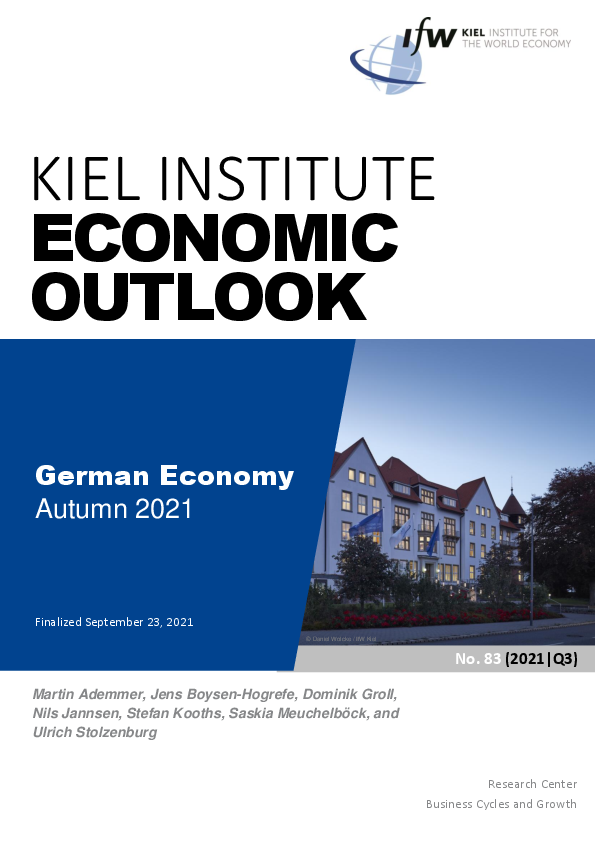Economic Outlook
German Economy Autumn 2021: Protracted catching-up process
Authors
Publication Date
Key Words
Related Topics
Labor Market
Fiscal Policy & National Budgets
Business Cycle Germany
The recovery of the German economy needs more time. Ongoing precautionary measures to protect against infection as well as the supply bottlenecks will slow down the catch-up process in the winter. Especially in those service sector that have been particularly affected by the pandemic the recovery is likely to slow down. Moreover, supply bottlenecks have increased noticeably and will probably only ease gradually. Once the economic burdens of the pandemic and the supply bottlenecks will have eased in the coming spring, the recovery will regain strength and economic activity will quickly return to normal. Overall, GDP will increase by 2.6 percent this year, making up only part of the losses of 2020 when it declined by 4.6 percent. The recovery will become fully visible in the 2022 growth rate of 5.1 percent. In 2023, GDP is also expected to increase markedly by 2.3 percent as some of the previously lost economic activity will still be made up for. The high inflation rate of 2.9 percent this year is largely due to temporary factors. However, they are likely to persist until next year and will lead to another strong increase in consumer prices before inflation moderates again in 2023. On the labour market, the negative impact of the pandemic will probably be overcome quickly and the unemployment rate will fall from 5.9 percent in 2020 to 5.1 percent in 2023. The recovery from the Covid-19 crisis will also be reflected in the public budget. After an increase to about 5 percent relative to GDP this year, the public deficit is expected to fall to 0.7 percent in 2023 amid the phasing out of pandemic-related aid and the recovery of GDP.









